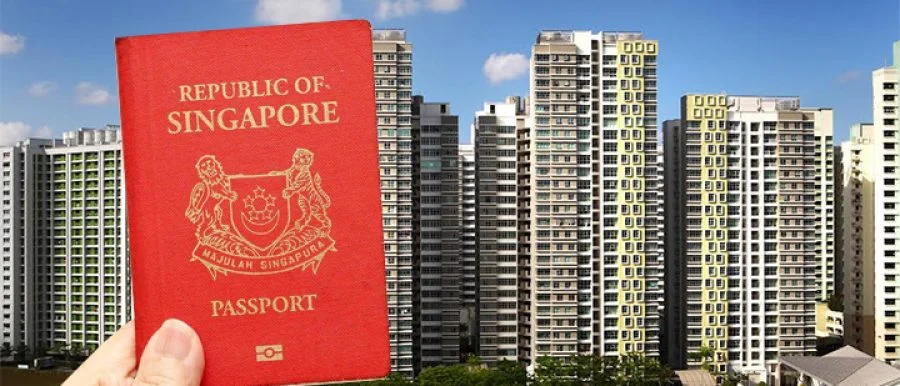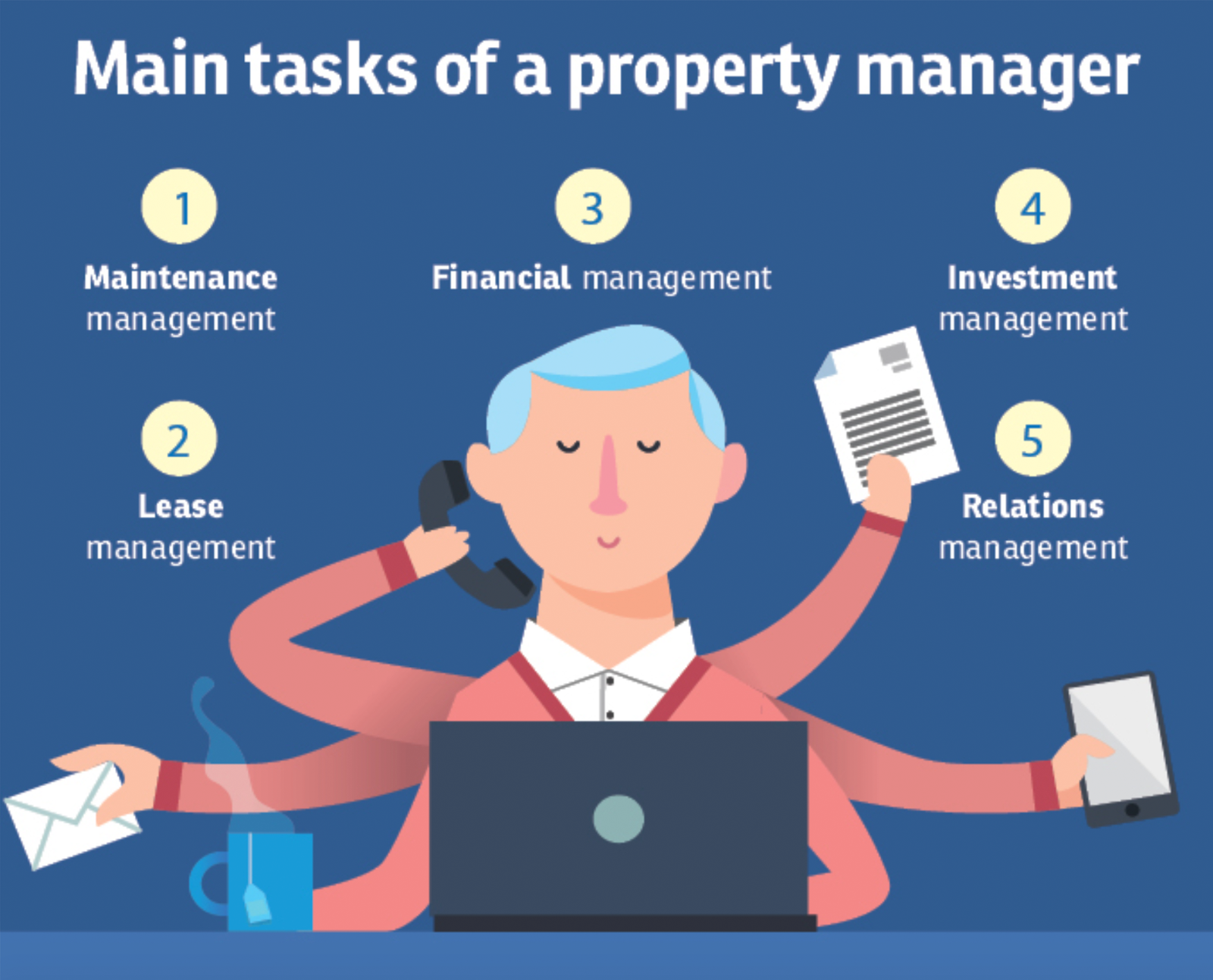Important Considerations When Buying Overseas Properties
Investing in overseas properties can yield great benefits, but are you aware of the pitfalls when doing so? Find out more in this article.

Why invest in overseas properties?
There are many reasons why people invest in overseas properties. Some overseas properties may provide a source for holiday leisure; some may be a retirement home. But more often than not, such purchases bring about unique investment benefits – some of which are highlighted as follows.
One of the most important benefits is international diversification, which is key to any modern investment strategy. Diversification helps to reduce the risk of concentrating all the investments in a single area and improves the risk-return profile of an investment portfolio. Investors would also be able to avoid the hefty Additional Buyer’s Stamp Duty in Singapore, which is currently at 17% for the second residential property owned and 25% for the subsequent properties for Singaporeans. In addition to protecting your investments, buying overseas properties also allows you to earn higher returns, especially against the low 2% to 3% yield in Singapore.
Should you be thinking of investing in overseas properties?
Investing in Singapore residential properties entail high transaction cost. Not only do buyers have to incur stamp duty of up to 6% of property value, they are also liable for Additional Buyer’s Stamp Duty of up to 25%. In addition, if they sell the property within the first four years of purchase, a Seller’s Stamp Duty rate of up to 12% is payable.
In addition, there are limits as to how much an investor can borrow to finance the investment property, potentially dragging down the returns. The government has strict rules regarding one ability to service debt through the Total Debt Servicing Ratio (TDSR) framework. Moreover, private residential property prices in Singapore aren’t low due to land scarcity with many investors are priced out of the market.
For investors that want to gain exposure to direct property investing, investing in foreign properties may be more accessible as property prices overseas are often lower. For example, the median price of a house in Sydney is just over A$1.2 million (S$1.1 million), whereas the price of a landed property in Singapore could cost well over $3 million at the very least.
However, Singaporeans should take note of the general rules in place for overseas property investment.
Rules for Singaporeans and SPRs on buying overseas properties

1) For HDB owners
Owners of Housing Development Board (HDB) properties can invest in overseas residential properties only after fulfilling the Minimum Occupation Period (MOP) of five years. After the MOP, HDB flat owners can sell and rent the flat, and are able to invest in private property locally and overseas. The MOP applies for both resale and new flats, starting from the date you officially own the flat. Once the MOP is over, there is no limit on the number of private properties you may purchase.
However, if you wish to invest in overseas non-residential properties, you may do so even before the MOP period ends. These properties are usually commercial real estate, which includes industrial, retail, and other mixed-developments.
Once you have fulfilled the applicable eligibility conditions that apply to your circumstance and invested in local or overseas properties, HDB property owners who are Singapore permanent residents (SPRs) will need to sell their HDB flat within six months.
2) General Rules
CPF savings cannot be used to invest in overseas properties, as they can only be used to purchase properties located in Singapore. This may prove to be a financial constrain to some buyers looking to purchase overseas properties. However, properties in other countries are generally priced lower than Singapore properties. As such, it is important to summarise the different factors and make an informed decision with a thorough financial assessment before you commit to your purchase.
For people who intend to purchase an HDB flat, you will need to sell all of your other residential properties within six months of purchasing an HDB flat. This rule applies to both local and overseas private residential property. After the purchase of an HDB flat, the rules for an HDB flat owner apply, if you want to make any investment in local or overseas properties.
Read also: Six Critical Success Factors In Direct Property investment
Sign Up at RealVantageAreas to consider
Before making an investment in overseas properties, you will need to get a firm handle on various considerations, failing which your returns could potentially be adversely impacted.
1) Familiarity with the market you are investing in
Investors should perform thorough research on the markets they are considering investing in. As the real estate market differs from region to region, investors should equip themselves with an adequate understanding of the specific market, before making any transaction. Because real estate investment is very much a local business, investors will need to have a firm grip at both the macro and micro level.
What does the upcoming supply picture look like? What are the price, rent, and transaction volume trends? How does the particular market segment perform relative to other segments? What drives the local economy and rental market segment? How is the labour market situation? Where are interest rates headed? How are regulators viewing the sector and what policy risks are involved? The long list of considerations you will need to take note of never ends. It is important to note that investing in overseas properties without the requisite familiarity of the local market is definitely a gamble and a recipe for disaster.
Many investors attend overseas property launches where brokers would present how attractive an opportunity is, and base their decisions heavily on what was presented. Needless to say, brokers are at these events to sell their properties through their spiel; so it is important that investors approach these presentations with a healthy dose of scepticism and conduct their own due diligence.
After all, brokers make their money from the sale itself but the consequences of the investment fall squarely on the investors at the end of the day. You would not, for example, hear a sales broker selling Australian apartments caution potential investors that when the time comes for them to divest their properties that they are selling into a smaller market. Based on the current regulations, only Australians are allowed to acquire properties off the secondary market.

2) Security of property title and the strength of the regulatory framework
Consumers should look into the laws regarding the ability to hold the title of a property and the requirements needed to secure the title. The policies for foreign real estate investments vary for different countries, and It is important to take note of the change in legal rights.
For example, the current New Zealand legislative changes have emphasised on banning foreign ownership of residential property with exceptions to foreigners with residency status, Australians, and Singaporeans. Australia's Foreign Investment Review Board (FIRB) had already banned foreign ownership for existing residential property. While Vietnam passed the law allowing foreigners to own properties as early as 2015, there are buyers who have not been able to receive their property titles, half a decade on.
3) Financing options and implications
If you need financial loans, you may take a loan from a local bank or a bank in the country in which your invested property is located. However, you will need to take into consideration the interest rates, loan currency, and loan limits. Not all local banks provide overseas property loans, and those who provide that may only limit the property loan to a few cities in select countries, such as the United Kingdom or Australia.
In addition, the Total Debt Servicing Ratio (TDSR) will also apply if you intend to obtain a loan from a local bank in Singapore, which limits the amount borrowers can spend on debt repayments to 60% of their gross monthly income.
Additionally, loan-to-value limits vary between different banks and countries and range between 50% to 80%. As such, you should diligently compare different bank packages to find a loan that is specifically suitable for your investment destination.
Investors may also choose to get recourse loans. A recourse loan helps a lender to recoup the money still owed to the bank after the property is foreclosed. By allowing the bank to go after the personal assets of the borrower. While recourse loans may be easier for borrowers to obtain, it subjects the other assets of the borrowers to risk, in the event of a default.
Other than getting bank loans, consumers may consider other options, such as paying cash or using developer financing. Cash payment allows the deal to close more quickly, but it is recommended only if the property is already built. There is a risk that the developer may face financial difficulties and delay project completion, and it can be difficult to get the cash returned in such a situation.
Depending on the region, you may also finance the purchase using developer financing if you are investing in a property undergoing development. Such financing usually involves less paperwork and onerous restrictions, and sometimes may even be interest-free because developers are motivated to close sales.
As a rule of thumb, developers resorting to such financing measures tend to be less established players or are faced with challenging sales conditions, so investors will need to be wary of such scenarios.
4) Asset management
Asset management aims to maximise property value and investment returns by reducing expenditures, mitigating liability and risk, as well as finding the best sources of revenue. However, it can be a hassle for you to closely manage your overseas properties due to geographical inconvenience and many would choose to hire a property manager for this task.
Property managers will manage the real estate and their responsibilities include renting out the property to achieve the best tenancy mix and rental income, as well as running marketing events or programmes to upkeep the property. In return, the property manager will be paid a property management fee out of the investment asset. As seasoned investors may share with you, finding a good property manager is no easy task.
In order to hire the most suitable property manager, you should try to conduct more research on the experience and track record of the manager and look at the fee structure to ensure that investor interests are protected.
Read Also: Doing Right by Our Investors

5) Tax and structuring
There are various tax considerations you need to be aware of on your overseas property investment, depending on where you invest. As this is a complex topic, you should seek to procure tax advice from credible sources and not overly rely on the information provided by real estate agents, who are not equipped to handle questions on this topic. Depending on the investment region and its jurisdiction, you can seek ways to minimise your investment tax exposure. As such, you should get familiar with the local and foreign tax policy and conduct prudent tax planning ahead of investment to maximise your returns.
6) Legal consideration
For most countries, the right for foreign investors to purchase property does not translate into the equal right to live, work, and stay in the country. Depending on the country of investment, property laws may reflect a certain level of institutional risk, as the laws can be restrictive or non-flexible for foreign investors.
Depending on the land zoning, some countries, such as Thailand, would require properties to be held under a local nominee’s name, resulting in a high risk for the actual buyer. Some other countries limit foreign investors to only 30% to 40% of property ownership but there have been cases of developers breaching that limit, to the detriment of foreign investors who have already paid for their units.
As such, investors will need to equip themselves with a good understanding of the legal considerations in the country of investment. Similarly, take into consideration the level of regulatory risk. Choosing to invest in properties in countries with a stable regulatory regime that favours foreign investment is a good way to narrow down on your investment options.
Read also: Market Selection in Real Estate - RealVantage’s Approach
Top countries for property investments that Singaporeans prefer
According to the 2019 EdgeProp-Knight Frank Homebuyers’ Sentiment Survey, Singaporeans’ top three cities for overseas property investment were Melbourne, London, and Bangkok. Melbourne is a popular investment option because many Singaporeans are well versed with the local regulations and the Australian property market, as well as its relative proximity to Singapore. Declining house prices in London have made it a favourable market for investment with Singaporeans, along with its positioning as a highly connected gateway city. Bangkok is also in the top three as it is a safe investment option, given the city’s steady housing prices.
Co-investing in overseas properties
Despite the benefits of overseas real estate investment, it remains a capital-intensive activity. To overcome this challenge, investors may consider co-investing in overseas properties with family members and friends to reduce their individual investment ticket size and manage over-concentration risks.
This can be a viable route, provided that all co-investors are aligned in terms of expectations and investment horizons, are good with their respective obligations, and there is at least one person within the group who is sufficiently equipped with the requisite experience and knowledge to manage the investment.
Realistically, however, these informal arrangements are vulnerable to changes and are extremely difficult to fulfil in practice, and such loose arrangements leave ample room for disagreements, or even worse, lawsuits. One scenario could be where one person in the group defaults on their mortgage payment, and everyone in the group becomes liable for the breach. The arrangement may also turn sour if all the members in the group cannot reach a consensus when deciding on certain matters.
The advent of property co-investment platforms has allowed investors to surmount many of these challenges faced by investors at the individual level. Such platforms have become very popular in recent years as investors come to recognise the benefits that they bring. With the right platform, investors can capitalise on the benefits and eradicate the challenges that traditionally entail cross-border property investments. For instance, good deals filtered out by real estate professionals can reduce the hassle of having to choose and manage the investments themselves.
Conclusion
Overseas property investment yields great benefits if you go through the right avenue with prudent financial planning. Potential investors should equip themselves with sufficient knowledge, such as understanding the market and closely following the relevant laws and regulations. Successfully investing in overseas properties consumes a lot of resources and requires domain-specific expertise that takes years to develop. With the advent of property co-investment platforms, investors can now invest in overseas properties and avoid over-concentration risks. Choose to invest with a reliable co-investment platform today.
About RealVantage
RealVantage is a leading real estate co-investment platform, licensed and regulated by the Monetary Authority of Singapore (MAS), that allows our investors to diversify across markets, overseas properties, sectors and investment strategies.
The team at RealVantage are highly qualified professionals who brings about a multi-disciplinary vision and approach in their respective fields towards business development, management, and client satisfaction. The team is led by distinguished Board of Advisors and advisory committee who provide cross-functional and multi-disciplinary expertise to the RealVantage team ranging from real estate, corporate finance, technology, venture capital, and startups growth. The team's philosophy, core values, and technological edge help clients build a diversified and high-performing real estate investment portfolio.
Get in touch with RealVantage today to see how they can help you in your real estate investment journey.
Disclaimer: The information and/or documents contained in this article does not constitute financial advice and is meant for educational purposes. Please consult your financial advisor, accountant, and/or attorney before proceeding with any financial/real estate investments.
